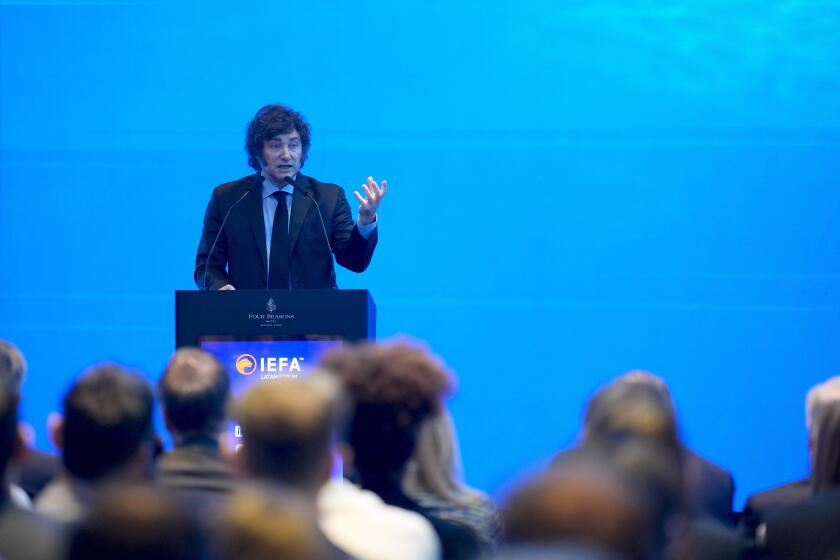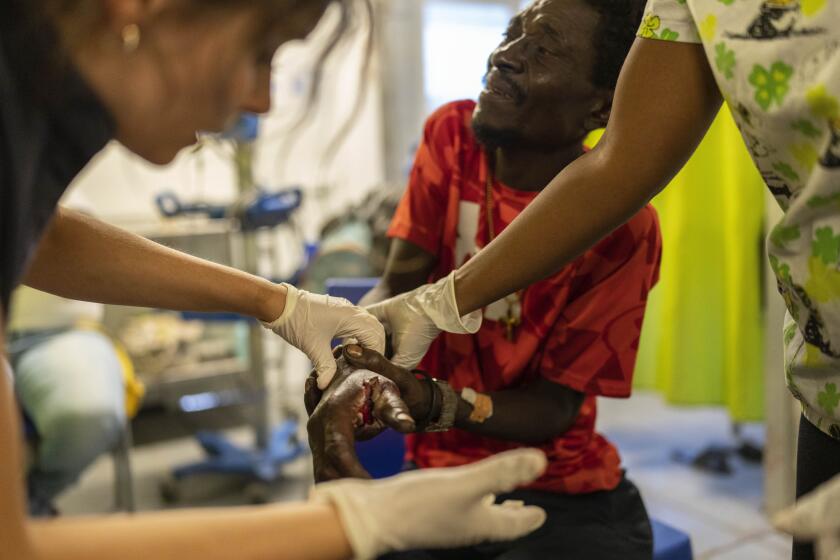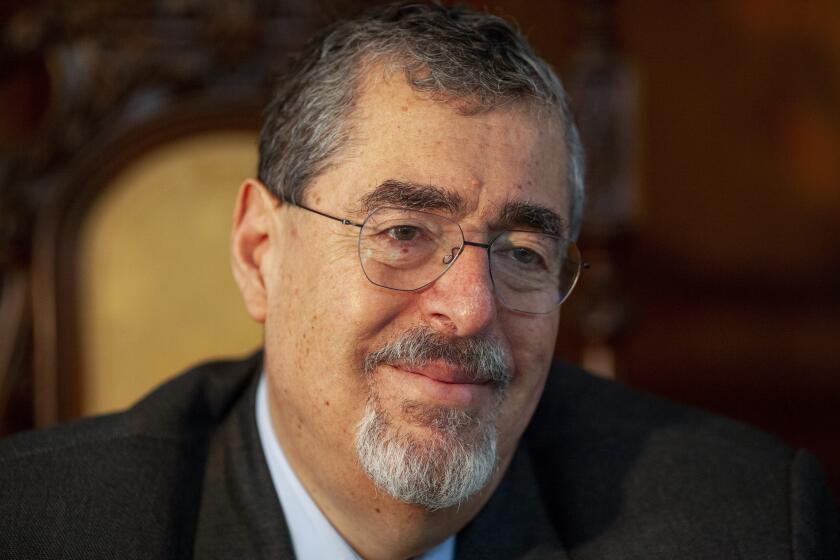Venezuela expels all remaining US diplomats, says blackout almost fully over
The Venezuelan government of Nicolas Maduro announced Tuesday that it ordered the expulsion of the US diplomats who still remain in the country after Washington had said earlier this week that the Donald Trump administration had made the decision to withdraw them, given that their presence “entails risks for the peace, integrity and stability of the country.”
Venezuelan Foreign Minister Jorge Arreaza said on Twitter that on Monday he informed the head of the US diplomatic mission in Caracas, James Story, of the decision not to continue bilateral talks to reach a potential agreement to establish offices to allow some sort of mutual diplomatic representation.
Venezuela gave the US government 72 hours to withdraw its remaining diplomatic personnel, according to the official announcement.
The Maduro regime - through Arreaza - claims that spokespeople for the Trump administration “are the same officials that have systematically lied to the world about Venezuela’s reality and personally have directed fake, flag-waving operations to justify an intervention.”
The Venezuelan government added that the Trump administration has threatened the use of military force under the pretext of protecting its diplomatic personnel in Caracas.
The Maduro regime said that it had made the “inalterable” decision to maintain “channels of communication and dialogue” with Washington provided that these channels are maintained within a framework of “equality and mutual respect.”
US Secretary of State Mike Pompeo announced Monday on Twitter the withdrawal of all US diplomatic personnel from Venezuela, saying that the decision “reflects the deteriorating situation in Venezuela as well as the conclusion that the presence of US diplomatic staff at the embassy has become a constraint on US policy.”
On Jan. 24, Washington had ordered all non-essential US diplomatic personnel to leave Venezuela but left a small group of officials in place at the Embassy in Caracas with the “limited capacity to provide emergency services to US citizens in Venezuela.”
Arreaza added on Tuesday on Twitter “Playing the game of one-upsmanship and trying to make people believe that it is Washington who is withdrawing its personnel is nothing more than an arrogant and defeatist reaction that shows great frustration. As I informed you (on Monday) President Nicolas Maduro’s decision must be complied with in the next 72 hours.”
In Caracas, Communications Minister Jorge Rodriguez said Tuesday that electric power had been “almost fully” restored around Venezuela after a massive blackout starting late last week affected most of the country.
“At this time, almost all the electric energy supply has been restored throughout the national territory,” Rodriguez told reporters.
The minister called the power restoration a “victory” in the face of what he and the Maduro government claim to be a “terrorist attack” perpetrated by the United States on the “distribution system” and the “brain” of Venezuela’s electricity grid.
However, he called upon the public to remain alert because, he said, the “electric war” continues.
The Maduro regime had said last week that the electricity distribution system had been sabotaged and was the target of a cyber-attack by the US, the target being the country’s main Guri hydroelectric facility in southern Bolivar state.
Restoring electric service has been overseen by Maduro, who has been monitoring developments from a “situation room,” according to what Rodriguez said on Tuesday, along with workers from the state-run electric company Corpoelec.
Because of the power outage, the supply of potable water across much of the country was also affected, although now that power has ostensibly been “almost fully” restored the water pumping systems are operating again.
Last Thursday, Venezuela experienced a massive power blackout that paralyzed the country, and the government suspended work and school classes, with communications and transportation services also being severely affected.
The blackout resulted in about a dozen states being completely without electricity, and looting occurred in the states of Zulia and Merida, while the NGO Doctors Health Organization reported that several hospitals had been significantly affected, resulting in at least 21 deaths.
Venezuela has been experiencing power failures for years but they have become more serious recently and the one that hit the country last Thursday was by far the longest in history.
Meanwhile, in New York, the European Union ‘s top foreign policy official said Tuesday that the bloc opposes military action in crisis-wracked Venezuela and rejects the notion of seeking to impose a solution to the oil-rich country’s woes.
“We believe that no military development, from inside or outside of the country, would be acceptable,” Federica Mogherini said during a Security Council meeting on cooperation between the EU and the United Nations .
“And a solution cannot be, and should never be, imposed from the outside,” the EU official said.
“The crisis that affects the country has political and institutional causes. It’s not a natural disaster. Its solution needs to be peaceful, political and democratic,” Mogherini said.
For this reason, she said, the EU has created an International Contact Group, comprised of both Latin American and European nations, “to help create the conditions for a political process that would lead to free and fair presidential elections.”
The Italian diplomat said the EU would continue to work with UN agencies “to ensure that humanitarian aid reaches those in need inside and outside of the country following the key principles of humanitarian law, and avoiding any politicization of the aid delivery.”
The opposition said Venezuela was going through a “complex humanitarian emergency” and has reached out to the international community for help.
Guaido, for his part, contends that it would be difficult for humanitarian aid to reach Venezuela and has accused Maduro’s government of burning buses carrying antibiotics and food that were attempting to cross the border from Colombia on Feb. 23.
A story published last weekend in The New York Times, however, said that after analyzing videos and images of the incident, it appeared the fire started when a Molotov cocktail was hurled by a Guaido supporter.
Elsewhere in Venezuela, in Maracaibo, the capital of the western state of Zulia, dozens of stores have been looted over the past few hours amid the power blackout that has kept the oil-rich region in the dark for the last five days, witnesses told EFE.
The looting went on from Sunday to Monday night in various districts of the city, the home of some 2 million citizens.
Violent groups slammed their way into bakeries, supermarkets, electrical appliance stores, shoe stores, jewelers, shopping centers and small stores of all kinds, and emerged loaded down with all the stolen goods they could carry.
Several witnesses interviewed by EFE said the plunderers worked in gangs, and at times faced troops of the Bolivarian National Guard (GNB), though an official number of those wounded or jailed has not yet been released.
Those sources said that at least 20 businesses were destroyed, from some of which the mobs even stole the furniture.
A great many photos and videos were posted on social media illustrating the dimension of this wave of plundering, while the damage done has not yet been quantified.
Venezuela’s chief business association, Fedecamaras, said on Twitter that the economic sector of this state began the day “destroyed by a vandalism that would only serve to make the economic crisis worse with even more shortages.”
The blight extended to the nearby city of San Francisco, with a population of some 500,000 people, and where mobile phones, tools and devices of all kinds, including many televisions, were stolen, Fedecamaras said.
The Chavista mayor of Maracaibo, Willy Casanova, said on the state TV channel that the city “is at peace” even though citizens face “problems caused by the electricity situation.”
“Criminals have taken advantage of these problems to try to upset public order and perpetrate acts of terrorism in the area...but we have dealt with them very firmly,” he said without entering into detail.
The electricity service in Zulia began to be reestablished with intermittent problems Monday night, after more than 100 straight hours without power, and even now much of Maracaibo still remains in the dark.
According to the Maduro government, these power outages are the result of a cyberattack launched by the United States and the local opposition, and have kept the electricity system in a state of instability almost everywhere in the country since Thursday evening.
Another 20 stores were sacked in recent days in the states of Anzoategui and Merida and in the Caracas district of Baruta, authorities of those jurisdictions told EFE.


